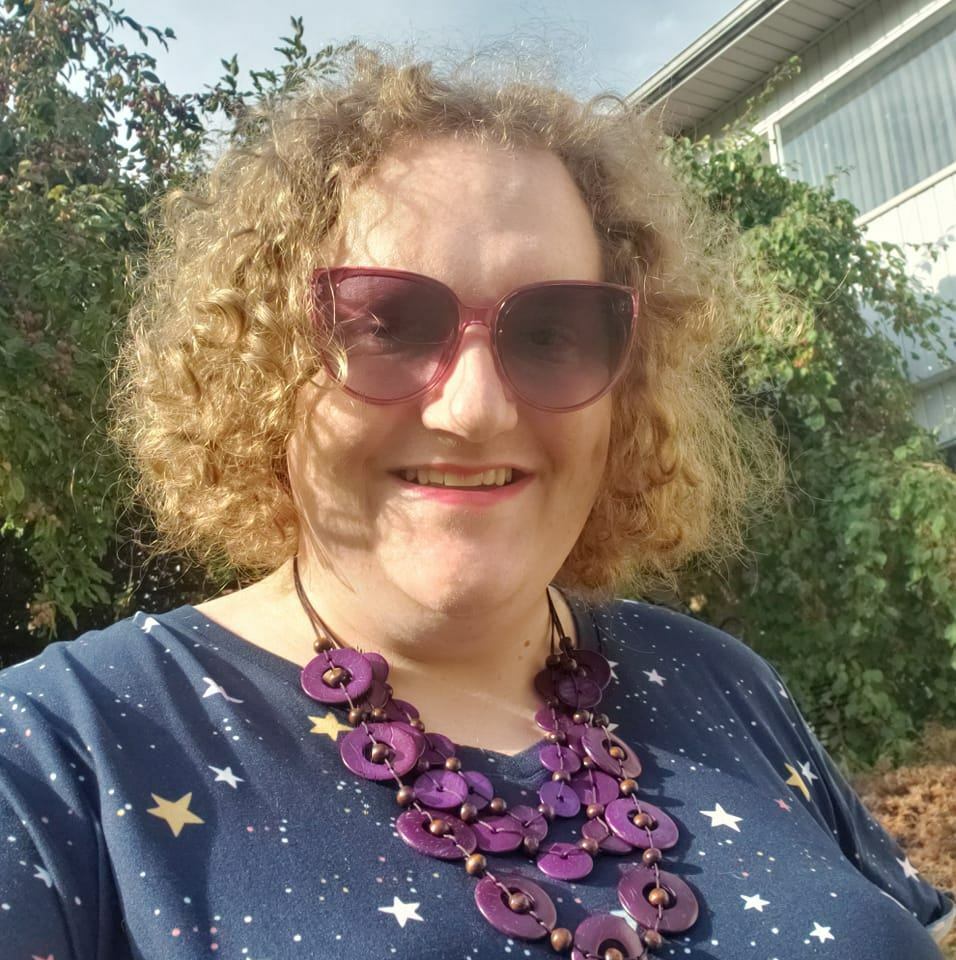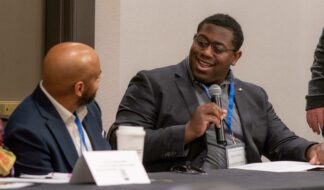When All the Nearby Homeless Shelters Are Faith-Based and Turn Them Away, Where Do Trans Folks Go for Help?
The advocate tackling discrimination at homeless shelters in Michigan's capital city

While she has managed to avoid homelessness, its specter has haunted Luna Willow Brown — she has seen many of her friends and peers experience it.
When they do, they have found an often-hostile environment in Lansing-area homeless shelters, in no small part because all Greater Lansing shelters are faith-based. Even when they try to be affirming, they are not always prepared to meet the needs of the trans community.
This is why Brown is committed to seeing change happen in the shelter community. She has formed “A Place for Us,” a coalition exploring solutions ranging from opening a trans-friendly shelter to demanding change in existing shelters.
Brown describes herself as a person with an increased risk for homelessness. A 35-year-old trans woman, Brown is on disability, is autistic and has other mental illnesses and physical health issues. The challenges she faces have inspired her to work for many local and state causes related to autism, mental illness and the LGBTQ+ community.
Born in Lansing, Brown has lived most of her life in the area, including tenures in East Lansing, Okemos, Webberville and Dansville. Coming to terms with her identity was a long journey, she said. In high school, she figured out she wasn’t attracted to girls and thought perhaps she was gay, but then realized she wasn’t attracted to guys either.
“I explored the trans stuff for years before I really started to come out and transition,” Brown said. “I’ve been on hormones for about two and a half years now and didn’t really start dressing feminine in public until rather recently.”
She said, though, that as someone who suffered mental health issues her entire life and even found herself in adult foster care situations twice, once she started dressing feminine in public, her mental health underwent a huge boost.
Quest for safe spaces
Brown has witnessed the horror stories of those who have been homeless.
“I’ve taken in a total of four people in the last two years, all of them trans and unhoused,” Brown said. “I got tired of hearing the same things over and over again — there’s no safe place for us. I know other trans friends who have taken in people as well because there’s really not many options for us other than going to Grand Rapids where they have affirming shelters. I could no longer stand by and watch our systems fail our people.”

The City Rescue Mission announced in August that it has been running at full capacity and their Executive Director Mark Criss said they were planning a $10 million expansion that would double their capacity, a plan that required and received the support of the Lansing City Council for zoning changes and a special use permit.
Brown was one of several people who spoke to the council, objecting to this expansion, in part because of what she calls the Mission’s discriminatory policies. Staff and volunteers must sign a statement of faith that condemns homosexuality. Anyone found to be a member of the LGBTQ+ community can be fired. Criss has emphasized in public statements that they don’t ask people to identify their sexuality and that the Mission’s primary goal is to share the gospel of Christ, which is why anyone attending the shelter is required to attend their church services. Pride Source reached out to City Rescue Mission but has not received a response.
Birth of a coalition
As Brown reached out to other local leaders for support, she realized that to instigate real change, it would take more than just speaking to city council members. It would take a coalition: “A Place for Us,” which now meets biweekly at The Fledge. They held their first meeting on Oct. 24 and people shared stories about their shelter experiences.
Some meeting participants pointed out that there are volunteers at City Rescue Mission who are committed to being inclusive despite the official policies of the organization, but they have little influence. Others suggested reaching out to progressive churches that financially support the Rescue Mission and encouraging them to apply pressure for policy and practice changes.
Brown feels the best solution would be to build a shelter that ensures the safety of LGBTQ+ unhoused community members, protecting them from discrimination and shielding them from forced religious services. However, because it could take as much as $1 million just to launch a shelter, the current plan is to focus their limited resources on advocating with and offering training to existing shelters.
Brown said her roommate, a trans man, stayed at Loaves and Fishes, which has a non-discrimination policy. However, they roomed him with a cis woman, which was awkward for both of them. At the group’s first meeting, individuals shared experiences of being assigned to shelters based on their birth sex rather than their actual gender, a policy that led to them being threatened by other residents.
A representative from the Lansing Area AIDS network pointed out that the issues at the shelter go beyond just LGBTQ+ and trans issues.
“These shelters are not equipped to [handle] — and are not educated on — mental health and substance abuse,” said Ligia Romero-Balcarcel, a care program manager and community liaison. “They lack knowledge on these areas. A lot of our individuals go into the shelters and have mental health issues but have not been given services because community mental health is just overwhelmed.”
She said they met with staff at the City Rescue Mission and emphasized the need for staff training and education.
“We were vocal about how they were treating our clients,” Romero-Balcarcel said. “Just because my client is gay doesn’t mean they are going to be going after someone who is heterosexual.”
Brown listed several things that shelters need to do to become safe places for LGBTQ+ people, particularly for people in the trans community.
It starts, she said, with having non-discriminatory policies for staff, volunteers and residents. From there, shelters need to have policies in place to ensure they can accommodate transgender individuals.
“They need to have gender-neutral bathrooms available,” Brown said. “They need to have single showers available and not only gender-based group showers like a lot of shelters have. They need to have policies in place to protect trans individuals and actually follow them — what to do if someone’s being discriminated against and actually take action against that.”
“A Place for Us,” under the leadership of Brown, has embarked on its mission to ensure that Lansing’s LGBTQ+ unhoused community finds refuge and support in shelters that embrace inclusivity. October marked the beginning of their efforts to make certain that everyone, regardless of their gender identity or sexual orientation, has access to safe shelter and assistance in the Lansing area.
Meetings for “A Place for Us” are held on the 2nd and 4th Tuesday of each month at 7 p.m. Email [email protected] for more information, including the location.









